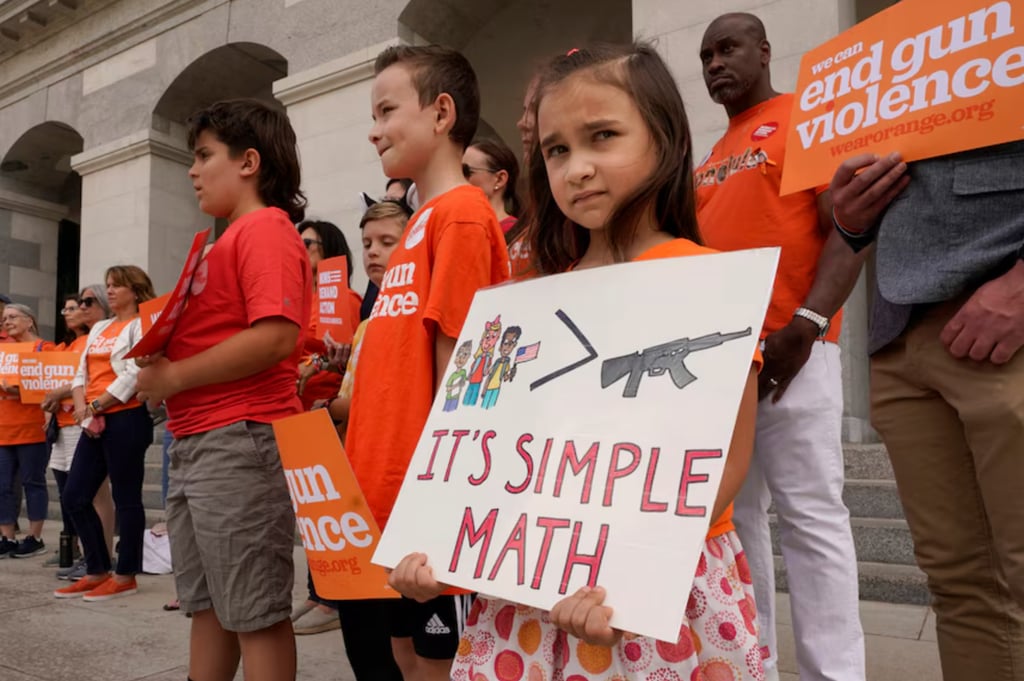The Untold History of U.S. School Shootings: Before Columbine
In this blog, we’re diving deep into the history of school shootings in America—before and after Columbine—and questioning the role of media coverage, American gun culture, and societal desensitisation to violence.
6/18/20253 min read


The Untold History of School Shootings in America: Before Columbine
Every time there’s a school shooting in the United States, news outlets often mention the shooter’s obsession with Columbine. But why does that event always come up? It’s not the only school shooting that’s ever happened — so what made Columbine the blueprint?
This blog dives into the deeper, less talked-about history of school shootings in the U.S. and unpacks why this tragic pattern has become embedded in American culture.
Watch Full Video:
“Before Columbine”: A Dark Timeline
Most people think Columbine was the first major school shooting. It wasn’t. Before that 1999 tragedy, there were dozens of shootings in schools — some even dating back to the 1800s.
We’re not just talking about targeted violence or isolated revenge. These were incidents where guns were fired on school grounds — and while many didn’t result in mass casualties, they still happened. That alone should be alarming
But in the U.S., the definition of what “counts” as a school shooting often depends on body count. This mindset — that if only one person dies, it doesn’t “really count” — feels uniquely American. From the outside looking in, even a single bullet fired in a school feels unthinkable. Yet, it’s been happening for centuries.
And while the international community has gone from shocked to outraged to… exhausted, the problem continues.
Why Columbine Became the Blueprint
Eric Harris and Dylan Klebold didn’t just commit a horrific act — they became infamous. Thirteen dead, 23 wounded, and a media circus that made their names unforgettable.
That level of infamy created a twisted legacy. Disenfranchised youth who feel powerless or angry sometimes latch onto that story — seeing Columbine not just as a tragedy, but a goal. The idea of being remembered, even for something awful, can be appealing when the alternative feels like being invisible.
But here’s the thing: can you name even one school shooter since then? Most people can’t. Fame through this kind of violence isn’t what it used to be. The media has (thankfully) learned not to sensationalize it, and now, many of these stories vanish in the 24-hour news cycle.
If the goal is fame, the odds are slim. Most shooters today either die in the act or live in lifelong disgrace — and are quickly forgotten.
This Isn’t a “Modern” Problem
It’s tempting to blame this on “modern culture” or social media or mental health. But the truth is, school shootings in the U.S. have been happening for over a hundred years. This isn’t new — it’s part of the country’s story.
The issue isn’t just guns. It’s about what’s prioritized in a culture. Other nations don’t accept the death of children as political background noise. In many places, one school shooting would trigger a national emergency. In the U.S., it’s a news segment… until the next one.
Where is the breaking point? What does it take for a society to say, “enough”?
Questions We Should Be Asking
Why is this history not being taught?
Are students learning about the long history of school violence in sociology or criminology classes? Or is it being buried?
Has any parent who was pro-gun lost a child in a school shooting?
And if so, did that change their view? Or does ideology run deeper than personal tragedy?
Are safety solutions like bulletproof backpacks and classroom bunkers normal now?
And if so — how is that acceptable? At what point do we say, “this isn’t working”?
Final Thoughts
The epidemic of school shootings is uniquely American. While rare events happen elsewhere, the frequency and normalization in the U.S. is unmatched.
If you’ve read this far, you’re probably feeling a mix of shock, sadness, maybe even anger — and that’s okay. These are difficult conversations, but they’re essential. Talking about death, trauma, and societal denial is how we start to shift things.
This post isn’t offering a neat solution. But it is calling for reflection — and awareness.
Because silence only helps the cycle repeat.
Want to go deeper?
We offer consultations and tailored education sessions exploring death, trauma, cultural narratives, and how to talk about difficult topics. Whether you’re an educator, student, or simply curious — we’re here to help you navigate these conversations with care and depth.
🎁 Download our digital resources – a mix of practical tools and in-depth guides on grief, mental health, and supporting others through difficult times.
🧠 Book a one-on-one session – talk with a professional in a safe, compassionate space

